| Umělec magazine 1998/6-7 >> Prague 1998 – A Significant Call for Communication with the Public | List of all editions. | ||||||||||||
|
|||||||||||||
Prague 1998 – A Significant Call for Communication with the PublicUmělec magazine 1998/6-701.06.1998 Vít Havránek | public art | en cs |
|||||||||||||
|
”Young people with a spray in their hands have not missed the wall in Vršovická Street. This wall will be the first one where the City Hall intends to try out its experiment. ‘We have arranged an artist who will decorated the sprayed walls with a range of colors,’ said the district office’s secretary Vilém Čermák. A bouquet of blooming meadow flowers will appear on the concrete wall within the next few days.” (MF Dnes daily, September 1998)
The motto takes us directly to the streets, the complicated network of public space typical for various interests that cross each other there: politics, economy, advertising, culture, religion...I do not intend to defend the dull teenagers who marked almost every other building in Prague with their primitive tags. There are, however, walls on which we see sophisticated response to authentic urban subcultures as to both their graphic expression and content. They feel the need to communicate and react through that what the other side calls art. The Soros exhibition grasped public art from the other side and its title should more correctly read as ”Art for public space”. Some of the participating artists showed the public their idea of work and art as they got an ideal chance that is not limited by anything from the functional point of view. The art community officially entered the field with a different hierarchy of contents, with the same need as in the case of sprayers – communicate, introduce their own rules into public space. It would be ideal to compose the review from people’s reaction – passers-by, drivers, police officers. It is, indeed, valuable that the exhibition is accompanied by a sociological research that will provide the socially focused artists with necessary feedback: it will show the artists-communicators the way in which the message they sent was deciphered, misunderstood or misinterpreted. For this is the point of contact, this is the best opportunity to carry out a detailed research of the reconstruction of sense, details that in their whole provide a picture of art in public space. Let us hope that the comparison of intent and its effect will be a subject of another commentary. My notes form an (incomplete) commentary from within art’s internal world which naturally lacks the magic of the unexpected meeting with art. There is no doubt that without the Soros Foundation’s support and being part of the Art in Public Space exhibitions, many of the projects would end up like the Vršovická Street wall and their place could to day be occupied with a blooming bouquet of flowers. On the other hand, many people employed in institutions managing public space were very helpful during the project’s preparations. I most enjoyed and was most surprised by a project I saw once in the warmth of my apartment. Charmed, I was watching TV out of which a peculiar electronic nothing was pulsing with organic/machine-like regularity. Among a number of projects, those that have been in the past working with contexts showed an advantage. Be it an exact context with which the work is engaged and within which it functions (Jiří Příhoda, Milena Dopitová) or conceptualists using a method of non-object manipulation of a selected context (J. Dolejš – M. Salák, Martin Zet). Similarly natural were projects by artists who have been before working with easily reproducible media (film, video, photography) or even public media (internet). Příhoda’s subtle stands advertising a fictive film in the U Hradeb Cinema will not be seen for sure by thousands of people as might be the case of billboards but the target group of people willing to see a film will respond with much sharper and stronger emotions than a billboard with an image of a potato (by E. and T. Polcar). A moviegoer will neatly and quickly flow into the colorful space of fiction, into a bubble where he will end up losing orientation: what is this strange film?, what is it about?, how come I haven’t heard of it?, is it a film at all?, is it a real film and is film real at all...? The most visible part of the exhibition is represented by posters and billboards made by the Polcars. At the first sight of the potato billboard, I thought they were absurd in a funny way. They introduce a ”normal” referential system into the billboard industry that is obviously in contrast with processes for advertising goods. When seen a few times, though, they become rigid, the joke is exhausted and only sight is left: so what’s the solution? Advertising, as we know today, is not only a nonsensical self-centered absurdity but also a developed psychology of consumerism, not only material consumerism but in the first place it is a sphere of consuming ideas. A chair or a potato will not change anything about it and will only remind us of what we already know. What is more interesting is Polcar’s photographic portraits in a transfer corridors of the Museum metro station. Martin Zet has been preparing his project in the metro throughout the year shooting video images in metro trains in European cities (plus New York). He then projected them on the ending walls of Prague’s trains. The most (or least?) interesting images for Prague public were shots of Prague’s subway ”in winter” with people’s stuffy noses and heads covered in fur hats. When the city decides to buy new trains, this project should be continued. Mr. Zet could offer the transport company to equip at least some of the trains with large scale monitors with videos of his choice. Still in the middle of summer when we didn’t even think of the Art in the Public Space exhibition, tram and bus stops were decorated with Shopping is My Hobby posters (by Alena Kotzmanová) depicting a torso of an old woman with worn out shoes and a plastic bag with a faded picture of Myslbek’s statue of St. Wenceslas. At that time, I had tons of other troubles on my mind (what were they anyway?) and didn’t even connect the poster with the exhibition. I immediately started thinking whether shopping was also my hobby and what kind of advertisement this was anyway: did all the producers of everything get together to motivate customers in a sophisticated way (as this is not a direct promotion of shopping)? Getting back to this project that was not realized in harmony with the rest of the exhibition, we come across one important condition affecting perception of all projects: it is the magic of the unexpected. Traveling, standing in a tram and being surprised by something unexpected that breaks our inertia into pieces, our habits that we follow in corridors of public space. This is a completely different kind of mood than traveling across Prague to experience an event that would have to be something to balance our intentional, cold travel. Even such a thing may happen, though! I didn’t get to the Cuba Square until dark and I was looking for a ”Live broadcast” on a ”screen placed in public space”. I almost crashed into it as it was hung on a light-post in this beautiful large square. It was an excellent esthetic installation: a small, a bit clumsily assembled black box, locked with two massive locks hiding a small screen of a size of camel’s eye. What we see is an image of an everyday (at this moment empty) kitchen with a part of a table and a chair. The picture is shivering slightly, its pixels remind of a video that has been copied a few times (is it really a live broadcast?, broadcast via air, perhaps?). This solitary sensor is staring into the empty boulevard lined with modern apartment blocks built in the 50’s. A strange situation reminding of secret surveillance, a remote memory of totalitarian regime. Orwell’s surveillance officers must have felt like this watching members of the Party in their apartments and what do the people inside feel like knowing they are watched by anybody at any time? (pages 14 through 15)
01.06.1998
Recommended articles
|
|||||||||||||
|
04.02.2020 10:17
Letošní 50. ročník Art Basel přilákal celkem 93 000 návštěvníků a sběratelů z 80 zemí světa. 290 prémiových galerií představilo umělecká díla od počátku 20. století až po současnost. Hlavní sektor přehlídky, tradičně v prvním patře výstavního prostoru, představil 232 předních galerií z celého světa nabízející umění nejvyšší kvality. Veletrh ukázal vzestupný trend prodeje prostřednictvím galerií jak soukromým sbírkám, tak i institucím. Kromě hlavního veletrhu stály za návštěvu i ty přidružené: Volta, Liste a Photo Basel, k tomu doprovodné programy a výstavy v místních institucích, které kvalitou daleko přesahují hranice města tj. Kunsthalle Basel, Kunstmuseum, Tinguely muzeum nebo Fondation Beyeler.
|















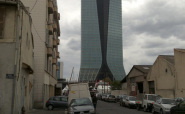

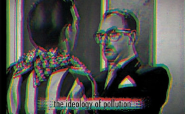
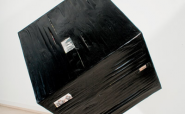
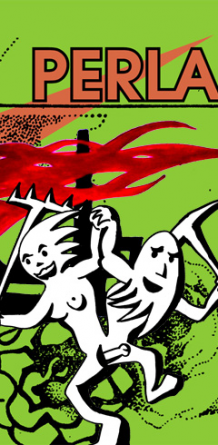






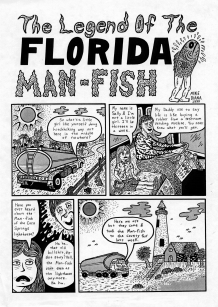




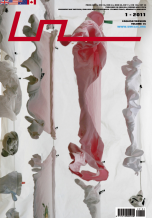
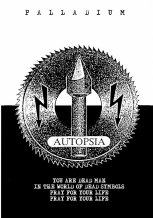
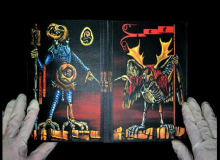
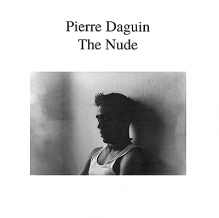


 We Are Rising National Gallery For You! Go to Kyjov by Krásná Lípa no.37.
We Are Rising National Gallery For You! Go to Kyjov by Krásná Lípa no.37.
Comments
There are currently no comments.Add new comment